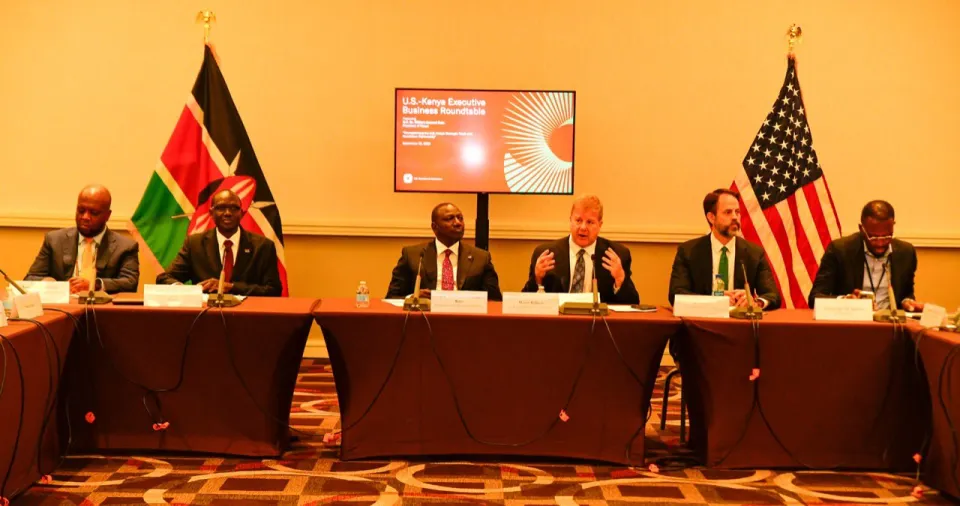Kenya has shipped its first consignment of locally made batteries to Ghana, two months after it was picked among seven countries to pilot the Africa Continental Free Trade Area (AfCFTA) that seeks to unlock the movement of goods and services in Africa.
The East African nation has identified products for trading under AfCFTA including tea, Exide batteries, confectionery, leather bags, incinerators, beaded products, vehicular filters, textiles, sisal fibre, and avocadoes and fresh produce.
- The United States has overtaken Uganda as the largest buyer of Kenyan goods, ending Kampala’s dominance as the top market for Kenya’s exports.
- The numbers from Kenya’s National Bureau of Statistics show that between January and June 2022, Kenya’s exports to the United States totalled 38.8 billion Kenyan shillings — the equivalent of about $321 million. Uganda’s imports from Kenya dipped to about US$300 million.
However, Kenya has been looking to strengthen trade ties beyond the bloc. The latest official data shows that the United States has overtaken Uganda as the largest buyer of its goods.
Read: Kenya exports batteries to Ghana in first AfCFTA trading deal
The entry of Kenya into other continental trade blocks comes amid a shrinking East African market for Kenyan products, with Uganda –which has been the biggest buyer for Kenya supplies— warming up to Tanzania.
Over the past 10 years, Uganda has been the largest buyer of Kenyan supplies, but recent events point to strained commercial relations between the two nations.
In June this year, the two EAC States were caught in a tussle when Nairobi reintroduced a levy on eggs imported from the neighbouring land-locked country, according to Business Daily.
This came at a time Kenya and Uganda were yet to resolve a long-standing dispute on milk after Kenya barred Uganda’s dairy products in 2019.
Official data show that exports to the US jumped 47 per cent to Sh38.8 billion in the first half of the year on the back of increased sales of clothes.
The sale of Kenya-made goods to Uganda dipped slightly at Sh36.2 billion in the period under review from Sh36.3 billion in the same half last year.

Kampala’s list of imports from Kenya has been narrowing over the years as investors set up factories in the country to manufacture goods previously imported from Nairobi, including edible oils and cement.
Kenya has long sought a full free trade agreement with the US, and the Donald Trump administration launched negotiations for such a deal to lower bilateral tariffs with the East African country in 2020.
East Africa’s investment hub enjoys substantial duty-free access to the US market through the Africa Growth and Opportunity Act (AGOA), a preferential trade programme for sub-Saharan African countries, but it expires in September 2025.
Kenya exported Sh59.6 billion worth of goods to the US in 2021, of which more than 75 percent entered duty-free under AGOA — chiefly apparel, macadamia nuts, coffee, tea and titanium ores — according to the Congressional Research Service.
The US exported Sh84 billion worth of goods to Kenya in 2021, with aircraft, plastics, machinery and wheat among the biggest categories.
A Kenyan economist, Wangari Muikia, said the country’s strong relations with the U.S., backed by the Africa Growth and Opportunity Act (AGOA), will likely continue to thrive as the new government of President William Ruto is keen on more American partnerships.
“The new government is pushing for greater trade with the US, with President Ruto meeting with the US trade officials this week,” Muikia said. “Most excitingly in tech, where Kenya’s Silicon Savannah is excelling now, a market like the US will open up business for Kenya and the region.”
President William Ruto, while on his first official foreign trip since being sworn in as Kenya’s fifth head of state, pitched for increased commerce between the two nations.
“Kenya is open for increased business with the USA. A conducive and enabling business environment will be a focus area of my administration to spur domestic and foreign direct investments to create jobs and wealth,” President Ruto said at a US-Kenya Executive Business Roundtable in New York.
Kenya is benefiting from a shift in US foreign policy towards Africa as the global economic giant scales up its presence on the continent to counter rising Chinese influence. China has grown into Kenya’s biggest bilateral lender and source of imports, which grew 9.0 per cent to Sh227.9 billion and accounted for 18.2 per cent of the total import bill in the six-month period.
Kenya is among African nations benefiting from a U.S. shift in foreign policy as it scales up its presence on the continent. The U.S. trade office said the two countries are developing a road map of engagement in agriculture, digital trade, customs procedure and other areas.
However, according to an article by The East African dated September 24, 2022, American technology giants want the Biden administration to compel the Kenyan government to abolish the digital services tax (DST) as a condition for a new trade deal.
The bone of contention between Washington and Nairobi is a 1.5 per cent digital services tax that the National Treasury introduced last year. Removal of the tax would stop Nairobi from collecting taxes from tech giants such as Google, Facebook and Amazon.
Meanwhile, the Export-Import Bank of the United States (EXIM) announced the membership of its 2022-2023 Advisory and Sub-Saharan Africa Advisory Committees. The EXIM Board voted unanimously on Thursday, September 1 to approve the membership of both mandated committees. Former U.S. Senator Heidi Heitkamp will serve as Chair of EXIM’s Advisory Committee for a second consecutive term, and Jude Kearney, Managing Partner at ASAFO & Co. law firm, will serve as Chair of the Sub-Saharan Africa Advisory Committee.
“EXIM’s Advisory Committee members will play an integral role as the agency enters a new, modern era,” said EXIM President and Chair Reta Jo Lewis. “We welcome the expertise of our newly appointed members and look forward to continued leadership and support from Senator Heitkamp in her second term as Chair of the committee.”











